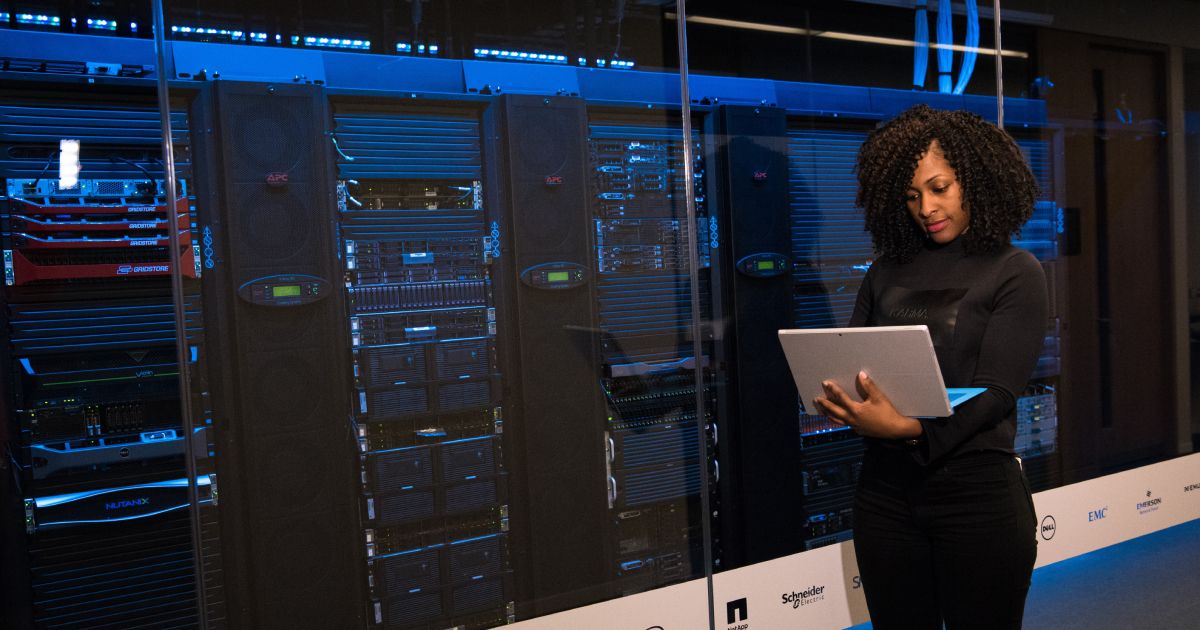5 Tech Trends Shaping Commercial Real Estate (CRE)

In the ever-evolving landscape of business and industry, technology is a relentless force of change. Its influence extends far beyond the confines of the tech sector, impacting every facet of our lives, including the way we conduct business and, in particular, how commercial real estate (CRE) operates.
In this article, we delve into the transformative effects of technology on the world of CRE, exploring the trends, innovations, and implications for investors, property managers, and tenants.
1) Proptech Revolutionizes Property Management

The CRE landscape is undergoing a profound transformation driven by the ascent of proptech, an abbreviation for property technology. Proptech represents a vast spectrum of innovations, ranging from intelligent building management systems to the deployment of IoT (Internet of Things) sensors and the utilization of predictive analytics. These tech-driven solutions are empowering property managers with tools to revolutionize building operations, curtail energy usage, and elevate the quality of tenant experiences.
Imagine the impact of IoT sensors in this context – these unobtrusive yet highly effective devices act as vigilant custodians of building operations. They continually monitor occupancy levels and environmental conditions, enabling dynamic adjustments to heating, cooling, and lighting in real-time. This not only translates into reduced operational expenses but also significant energy savings and a diminished environmental footprint. Beyond the operational efficiencies, proptech has the added benefit of making commercial spaces more attractive to prospective tenants.
As proptech continues to advance, it promises to reshape the CRE sector, offering property managers an unprecedented arsenal of tools to enhance their properties, lower their ecological impact, and cater to the evolving expectations of tenants.
2) Virtual Reality (VR) and Augmented Reality (AR) in Property Tours

The influence of technology on the commercial real estate sector extends beyond property management and building operations. It's fundamentally changing the way properties are presented to prospective tenants and buyers. Two standout technologies in this regard are Virtual Reality (VR) and Augmented Reality (AR). These innovations allow individuals to take immersive virtual property tours, eliminating the need for physical visits. This not only saves valuable time but also extends the reach of property listings to a global audience. With VR, potential tenants or buyers can explore properties from the comfort of their own homes or offices, offering convenience and accessibility like never before.
Augmented Reality (AR) further amplifies the property viewing experience. AR applications can overlay essential information about nearby amenities, services, and even neighborhood insights onto a physical property. For instance, a potential tenant exploring an office space through an AR app could instantly access data about nearby transportation options, restaurants, or schools. This layer of augmented information not only enhances the decision-making process but also offers a more comprehensive understanding of the property's surroundings, contributing to more informed choices in the CRE market.
This transformation in property showcasing, fueled by VR and AR technologies, not only streamlines the property search process but also elevates the level of information available to potential tenants or buyers, resulting in a more informed and efficient decision-making process.
3) Big Data and Predictive Analytics

In the dynamic landscape of CRE, data has emerged as a precious resource, akin to a goldmine. The integration of Big Data and predictive analytics has significantly transformed the way investors and property managers operate. These technologies have the power to revolutionize decision-making processes by leveraging historical and real-time data to forecast trends. From rental rates to property values and occupancy rates, predictive analytics provides valuable insights that empower stakeholders to refine their investment strategies. By recognizing potential risks and seizing opportunities ahead of time, these tools enable CRE professionals to navigate the market's ever-changing currents with confidence and precision.
The impact of data-driven decision-making extends beyond the financial realm. In the CRE sector, it can also enhance tenant experiences. By collecting and analyzing data on tenant preferences, behaviors, and usage patterns, property managers can tailor services and amenities to better meet tenants' needs. For instance, insights derived from data analytics may lead to adjustments in building temperature, lighting, or security systems in response to tenant habits, fostering a more comfortable and secure environment.
This convergence of data and CRE holds immense potential for both investors seeking a competitive edge and tenants looking for spaces that adapt to their evolving requirements, ultimately reshaping the industry's landscape.
4) Co-working Spaces and the Flexibility Trend

The advent of technology has catalyzed a profound shift in the commercial real estate sector by ushering in new ways of working. One prominent transformation is the rise of co-working spaces, facilitated by innovative tech-driven platforms. These spaces have rapidly gained popularity, attracting freelancers, startups, and remote workers seeking flexible and collaborative environments. Through user-friendly platforms, individuals can seamlessly connect with spaces that align with their specific requirements, whether it's a shared desk for a day or a private office for an extended project. This disruptive trend has not only reshaped the way people work but has also had a considerable impact on office space leasing and design.
The surge in co-working spaces has compelled CRE professionals to reimagine traditional office layouts and lease structures. Property owners and managers are increasingly adapting to accommodate the growing demand for shared office environments. This includes offering more flexible leasing terms and providing amenities that cater to co-working communities. Moreover, technology plays a vital role in these spaces, offering features like mobile app access, secure Wi-Fi, and collaborative tools that enhance productivity and connectivity.
In essence, the technology-enabled co-working revolution has disrupted the conventional office landscape, underscoring the need for CRE stakeholders to embrace innovation to stay competitive in a rapidly evolving market.
5) Blockchain's Potential for Property Transactions

Blockchain technology is poised to instigate a transformative wave in the realm of property transactions within CRE. At its core, blockchain's hallmark attributes of security and transparency promise to streamline the often intricate and paperwork-laden process of property purchases. By offering a tamper-resistant and immutable ledger of transactions, it significantly reduces the risk of fraud, a concern that has historically plagued the real estate industry.
Moreover, blockchain introduces the concept of smart contracts, programmable self-executing agreements, which can revolutionize property dealings. These contracts have the potential to automate various tasks, such as property transfers and rent collection, with the precision of code, thus further enhancing operational efficiency and minimizing the need for intermediaries.
Beyond its application in property transactions, blockchain also promises to democratize real estate investment. Tokenization, a process facilitated by blockchain technology, allows for the division of real estate assets into smaller, tradable tokens. This approach provides investors with the opportunity to buy fractions of high-value properties, offering greater liquidity and accessibility to the real estate market. This not only opens doors for a more diverse range of investors but also has the potential to reshape the dynamics of CRE financing.
In summary, blockchain's foray into CRE holds the promise of making property transactions more secure, efficient, and inclusive, potentially revolutionizing the industry's traditional practices.
Final Thoughts
The convergence of technology and CRE is reshaping the industry at an unprecedented pace. From intelligent building management systems to virtual property tours and data-driven decision-making, tech-driven innovations are providing new opportunities and efficiencies.
However, with these opportunities come challenges related to data security, privacy, and the need for adaptation. In this dynamic landscape, staying abreast of technological advancements is crucial for all stakeholders in the commercial real estate sector, as embracing technology is no longer an option but a necessity for success.





